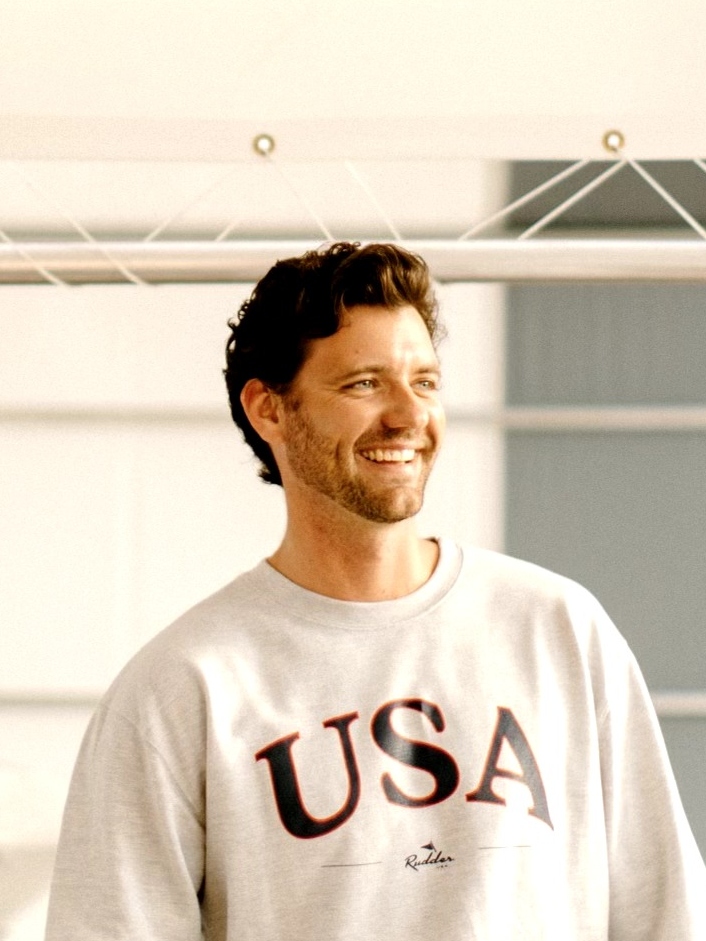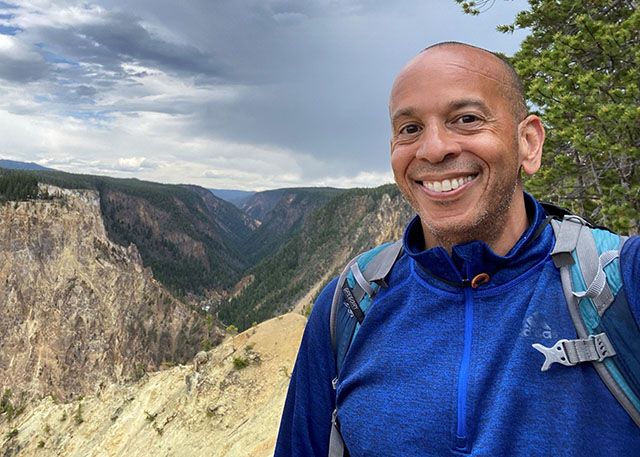Ana Soloviov: SIBC Project Brings Students to South America
Inside USD -- Ana Soloviov, a sophomore Industrial and Systems Engineering major, spent her spring break in South America. A native of Chisinau, Moldova, Soloviov was one of five USD students educated about beverage products created and sold by Guayaki, a Fair Trade company. The trip was through the USD Student International Business Council (SIBC) and its Guayaki project. I joined the SIBC as a freshman. What attracted me most was the organization’s mission to promote peace through commerce. There are multiple projects within this club, each one helping non-profit companies or having a socially positive impact on the world.
The positive energy of the Guayaki project leader, Cathy Kelly, led me to it. Our goal is raising awareness of the tea products made by the Guayaki Fair Trade Company. We set up a table each Wednesday and give away free samples of fresh-brewed Yerba Mate tea. Learning more about the properties of this magic drink, I realize how much energy it gives your body without the side effects of coffee. I couldn’t stop sharing this idea with friends and other students at farmers markets. At the end of my first semester, Cathy asked me to become a leader.
For the past three semesters, while sharing the leadership position with Cathy, her sister Denise and currently Beau Seguin, we’ve made great progress. Our team has grown and the Guayaki supply in the refrigerators at Tu Mercado quickly empty. The number of events where we represent Guayaki has increased exponentially. I’ve created a good base of resources, including annual reports, spreadsheets of positions, journal of minutes and photos.
The reward for our hard work was to travel with four other USD students — Beau Seguin, Katrina Warren, Kate Reid, Alexis Rinker — to South America. We visited the plantations of Yerba Mate and the indigenous people helped by Guayaki. We successfully visited multiple plantations and tasted the local culture.
This trip would not have happened without Cathy and Denise, who are from Paraguay, guiding us during our stay. In 10 days, we visited four countries — Panama, Paraguay, Argentina and Brazil — and drove more than 1,600 miles. Almost nothing went as planned, but unexpected is always best.
We took a four-hour taxi tour to the Panama Canal between flights, went to its museum, drove through the reconstruction of the old town and learned how much the country is developing.
In Paraguay we stayed at the Kelly’s family house and were introduced to a common tradition of drinking terere (cold Yerba Mate) served from a guampa (gourd, filled with loose leaf) by pouring iced water into it and sipping through a bobmilla (filtered straw). We drove to Encarnación, by the Argentina border, and got crushed mint and other leafs for our terere. On the way to visit the ruins of the Trinidad (pictured, right), a World Heritage site where one of the first missionaries was built in the 17th century, we stopped on a side road to pick as many guavas from a tree as possible. It was delicious!
We crossed the Parana River to Argentina and stayed at the Kelly’s family ranch in El Timbo (Corrientes) for two nights. We experienced farm life by milking a cow, watching as our lunch lamb was killed, rode horses with Gauchos, swam in a muddy river bordering Brazil and explored fields of Yerba and Eucalyptus plantations. We visited local leather shops and toured plantations and factories from two Yerba Mate companies, including the world’s largest mate production plantation (Taragui has more than 10,000 hectares of mate and another 10,000 for other types of tea). We visited the Guayaki company office and plantation, which is smaller and less industrialized than big companies. It’s also organic and traditional as they handpick all leafs.
The biggest attraction was Iguazu Falls, considered the world’s most beautiful and the biggest by the number of falls (more than 270). El Garganta del Diablo is the throat of the falls where the vast majority of the water plunges. The accompanying rainbow was more than three-quarters of a circle, butterflies stayed on your fingers and crocodiles, toucans (pictured, left) and other birds made the falls in the rainforest seem like paradise. We also visited the local zoo, which gave us more insight into local biodiversity.
We wanted to cross the border back to Paraguay by ferry, but it was down for three days due to the Easter holiday. We settled on a 40-minute drive through Brazil. We passed through one point that borders three countries (Paraguay, Argentina and Brazil) and stopped at a gas station and discovered how tasty Brazilian coconut water is. That night we couldn’t find our destination and, instead, stopped in the middle of nowhere. But when I looked up, I was shocked by the amount and size of the stars. We could clearly see the white smoky area of the Milky Way! When we arrived at our destination, we toured the rainforest, walked on a hanging bridge over a river, ziplined and went canoeing.
My first trip to South America was an awesome experience. I learned a lot about local culture, especially how much it’s linked to Yerba Mate with Paraguayans drinking cold terere and Argentineans drinking hot mate, the equivalent to Americans drinking water. On the business side, I realized big investments involve big risk and require a long-term foundation, but that pursuing something you’re passionate about on a small scale gets you further and make you happier. I learned some Spanish and had a lot of fun with my friends. I’m grateful to USD for funding such organizations as SIBC, which supports such socially ethical companies as Guayaki and encourages students to take leadership roles.
After this trip I value each sip of my Yerba Mate even more because I know how much time and effort it takes to grow (10 years), store (one year), package and ship to the U.S. I saw the common struggles of Third World countries to fight corruption (Argentina) but I realized only hope and belief could rescue a country to regain its pride and will to change the future (Paraguay). I can now relate this to my country, Moldova, and to personal life in general.
— Ana Soloviov



